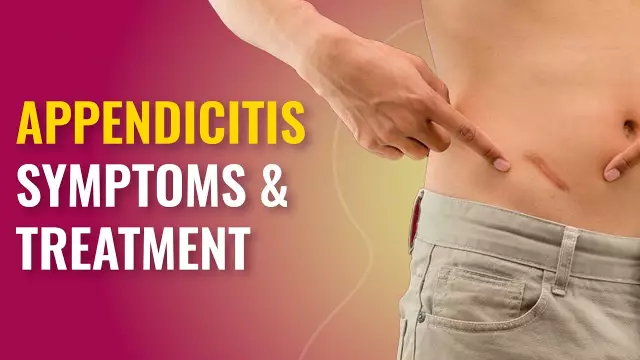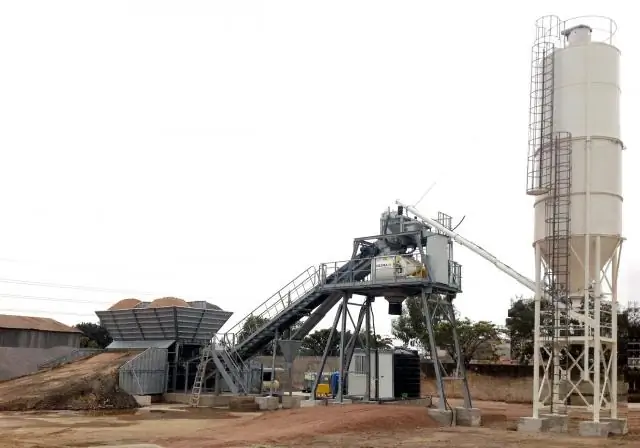- Author Rachel Wainwright wainwright@abchealthonline.com.
- Public 2023-12-15 07:39.
- Last modified 2025-11-02 20:14.
Appendicitis
Appendicitis (appendicitis; anat. Appendix vermiformis - appendix + Latin it (word-form suffix) - inflammatory process; synonyms: vermiculitis, epitiflitis) - an inflammatory process of the appendix of the cecum.
The following types of appendicitis are distinguished:
- Gangrenous (gangraenosa) - characterized by necrosis of all layers of the wall of the appendix in a limited area or throughout its entire length;
- Hernial (hemialis) - appendicitis when the appendix enters the hernial sac against the background of a hernia of the abdominal wall;
- Destructive (destructiva) - characterized by the destruction of the tissues of the appendix due to their purulent fusion or necrosis and putrefactive decay;
- Catarrhal (catarrhalis) - acute appendicitis, in which the tissues of the appendix are not destroyed;
- Acute (acuta) - shows attacks of acute pain in the abdomen with signs of irritation of the peritoneum and a violation of the general condition of the body;
- Perforated (perforafiva) - destructive appendicitis, in which the destruction of the tissues of its wall leads to perforation of the appendix;
- Retrocecal (retrocaecalis) - appendicitis with the localization of the appendix behind the cecum, in whole or in part in the retroperitoneal tissue;
- Recurrent (recidiva) - a repeated attack of acute appendicitis, which arose after a long period, during which only signs of chronic appendicitis were observed or there were no painful phenomena;
- Sclerosing (sclerosans) - characterized by extensive cicatricial changes in the wall of the appendix, which lead to obturation or obliteration of its cavity;
- Fibroplastic (fibroplastica) - characterized by the proliferation of connective tissue in the subserous and submucous layers of the appendix wall;
- Phlegmonous-ulcerative (ulcerophlegmonosa) - characterized by ulceration of the mucous membrane of the appendix with the subsequent spread of the inflammatory process in the underlying layers of its wall with their purulent fusion;
- Chronic (chronica) - proceeds as a productive inflammatory process of interstitial (interstitial) tissue, mainly around the intramural vessels of the appendix. Chronic appendicitis is clinically manifested as mild persistent or colicky pain; arises as a result of the transferred acute appendicitis, and sometimes without it.
Found a mistake in the text? Select it and press Ctrl + Enter.






